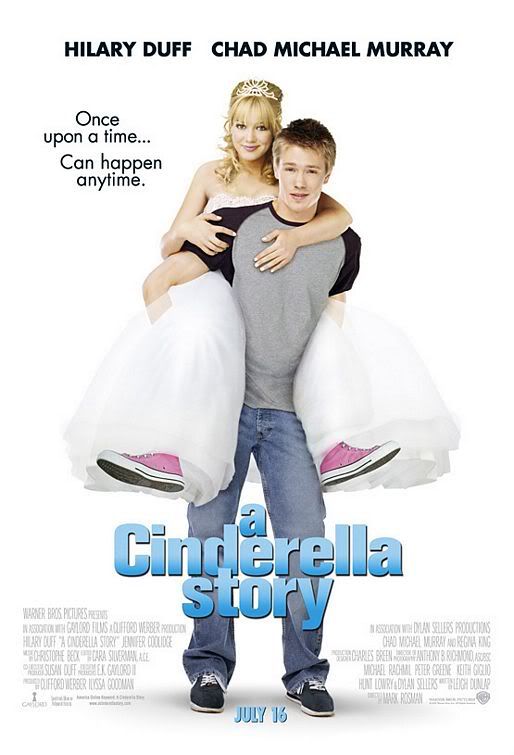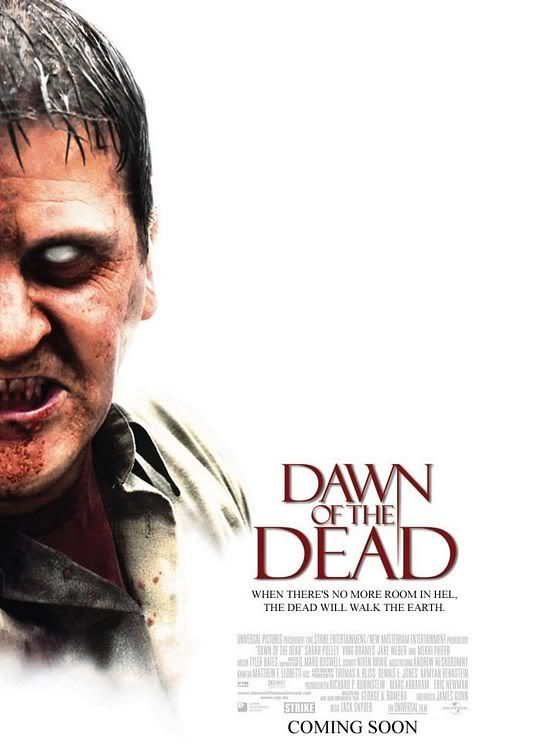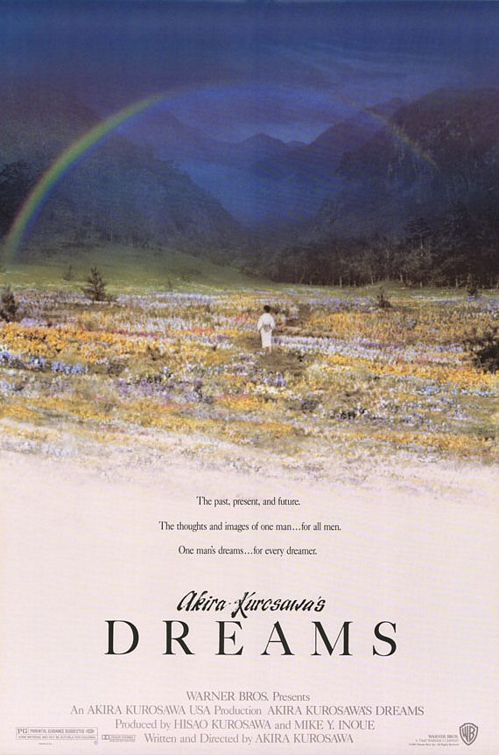No more horsewagon made out of rats and pumpkin, but a boy in a Zorro costume with a Mercedes.
No more fairy godmother, old, wise and fat, but an African-American ordinary-Jane working in a Diner.
No more Prince charming rode in a white horse, but an almost-perfect young man, handsome, head school president, captain of football, crushed by half girls in school, with a little problem of identity-crisis.
The evil stepmother still there, the evil twins are still there as well.
"A Cinderella Story" one of the worst movie of the year.
Starring: Hillary Duff, Jennifer Coolidge, Chad Michael Murray
Directed by: Mark Rosman
For an adolescence Sam (Duff), living with his father was everything a young girl could've asked for. So when an earthquake said to separated them, Sam had to start a new life with her stepmother (in movie, it said that she came shortly before the earthquake) and her twin stepdaughter who happened to inherit all of Sam's dad possession since he -- aparently -- doesn't leave any will.
The movie then jumps in several years ahead when Sam was already in her senior year in high-school. Now the movie then forcefully dragged the classic tale of Cinderella to a modern day high-school. Okay, then it's time to test our virtue of how much had we known about American high-school life as portrayed in movies. Let's see what we've got:
1. A group of annoying teenage queen-wannabe bitches who happened to be de-facto leader of cheer-leader squad. This group usually consists of three. check.
2. A man, a young man, a handsome man, a cool man. He was popular, a head-president school, captain of football team, had a bright future laid ahead of him, and half of the girl in the school fell in love with him. Also known as 'The Prince'. check.
3. An ordinary man, trying desperately to be known but would only humilliating himself in the end. Now this man is real. But let's add the flavor a little bit.. he had no friend. Well, except for Sam, our heroine that is. check.
4. And now! may i present you, our heroine the one and only, an angel in disguise, a hard-work laborer, a straight-A student, working 7 days a week in a diner owned by her step-mother, also doing a house-errands 7 days a week, always seemed get herself in the way for the group of annoying teenage queen-wannabe bitches. Samantha. check.
What else do we got? umm.. we got an evil step-mother which nowhere near 'evil' that i had expected before. A pair of devilish evil twin step-sister.. umm wait, an idiotic moronic so-stupid-that-no-way-they-could-have-been-graduated-from-Junior-High-School pair of movie-bullies shall do, and oh yeah, how could i almost forgotten about her.. an African-American diner manager as a fairy godmother's personification.
Samantha had an internet boy-friend which shares the same interest as her (which was -- as the movie suggests -- going to the Princeton), poetic, almost romantic, not to mention smart. Now they had planned that they shall meet at the Helloween's party. But Sam's evil step-mother forbid her to go and told her to work at the diner instead. Before she leaves though, she said "I shall be back at the diner on 12 sharp". There you go, Cindy, you had your ultimatum. Cindy.. um, Sam.. refused to go to the party, but when her friend -- the one and only friend --, her co-workers (which soon she would addressed them as her real family) insisted that she should go, she decides to go then only to find out that she doesn't have a suit. Now, this is where the fairy godmather comes in. Okay.. okay.. okay... i'll skip the details... so they went.. to the party... prince... charming.. ballroom... outside dance... a twelve o'clock chimes... came at the diner.. barely in time... evil step-mother.... a Princeton acceptance letter.... a hidden will.. and well, Sam and the Prince live happily ever after.
This movie have it all, all that made the movie terrible. A similar kind of theme had been excercised and exploited by many movies before. Altough that it wanted to brings a classic-tale of Sam.. umm, i mean Cinderella to a modern-tale, it still couldn't escape the teenage-flick formula with a high-school life and stuffs. It works best to a 12-14 years old girl tough that i was doubted that it would still works after all this similar kind of movie floating around. The script? umm, no! simply no! Sam's last speech to Austing in a man's locker room was more dramatic visually than it was phonetically. And the ending? like Sam said, "all will fall into place". It was full of coincidence. Almost unnecessary, exaggerating coincidence that it seemed a million light-years away from reality. Ironic as Sam once said, "I'll go back to reality".
Well, i guess that's a wrap.

Rating: 1/2 / **** -- quoting Sam, "I live in an attic!". I'd say, "well at least it had a window, and you've got your own personal computer there".
Upnext: New Police Story (2004)





